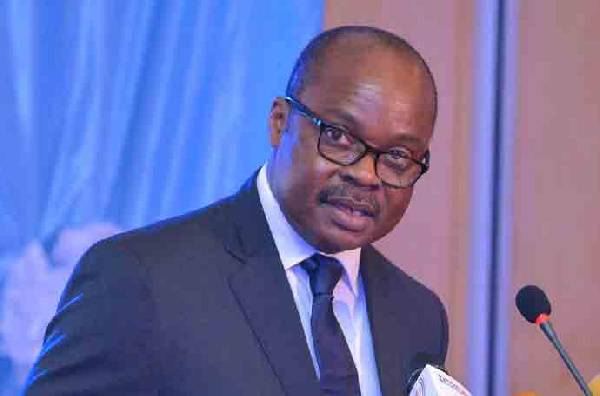
The Monetary Policy Committee (MPC) of the Bank of Ghana (BoG) has increased the Monetary Policy Rate (MPR) by 50 bases points (0.5 per cent) from 29.5 to 30 per cent on the back of uncertainty in the world economic outlook and threat of rising inflation in both the global and local economies.
The policy rate is basically the rate at which the BoG borrows to commercial banks in the country, which serves as benchmark for the banks to lend to the public.
According to the committee, although the global growth had shown signs of improvement in early 2023, the near-term prospects remained uncertain amid tight financing conditions and elevated underlying inflation and the “Local economy risks to the inflation profile were judged to be elevated driven by second round effects of food prices.”
“Given these considerations and under the current circumstances, the committee has decided to increase the Monetary Policy Rate by 0.5 per cent to 30 per cent,” the MPC stated.
Addressing a news conference after the 113th regular meeting of the MPC to announce its policy stance for the country, Governor of the BoG, Dr Ernest Addison, who is the chairman of MPC, said the global financing conditions remained tight in both advanced and emerging market economies, reflecting the pass-through effects of aggressive monetary policy tightening on bank funding costs and credit conditions.
He said headline inflation had continued on a downward trend across many countries, responding to tighter and coordinated monetary policy, easing energy and food prices, and reduced supply bottlenecks, but core inflation had been more persistent amid cost pressures in labour markets.
Dr Addison said the policy stance for most major advanced economies was expected to remain tight until inflation declined to central bank target ranges, with adverse implications for financing conditions for emerging and frontier markets, including Ghana.
On the domestic economy, Dr Addison said although inflation was expected to decline in the near-term, baseline forecasts showed a slightly higher elevated profile in the year ahead, which, if not contained, could embed in underlying inflationary pressures.
“It is important that policy responds appropriately and decisively to prevent these risks from becoming embedded and consequently derail the disinflation process,” he said, adding that “In the coming months, the committee will monitor closely incoming inflation data and will respond appropriately, if needed, should inflation persist.”
The Governor explained that after declining consistently between January to April, headline inflation increased in May and June on account of a variety of factors, including higher food prices, implementation of new tax measures, and utility tariff adjustments.
The overall inflation increased from 41.2 per cent in April to 42.2 percent in May and then further to 42.5 per cent in June, 2023.
Dr Addison said Ghana’s macroeconomic framework required decisive tightening from both the fiscal and monetary side to anchor inflation expectations firmly on a declining path.
Dr Addison observed that the country’s external sector position improved significantly in the first half of the year, bolstered by current account surplus, reflecting higher gold receipts, import compression and lower investment income payments.
“The external sector performance, the domestic gold purchase programme, along with increased voluntary repatriation by the mining sector and the liquidation of some short-term external liabilities led to some sizable accumulation of external buffers,” he stated.
He said the outlook for reserve accumulation in the second half remained broadly positive, and expected to be boosted by the expected inflows from cocoa syndication and other multilateral (World Bank and AfDB) inflows.






